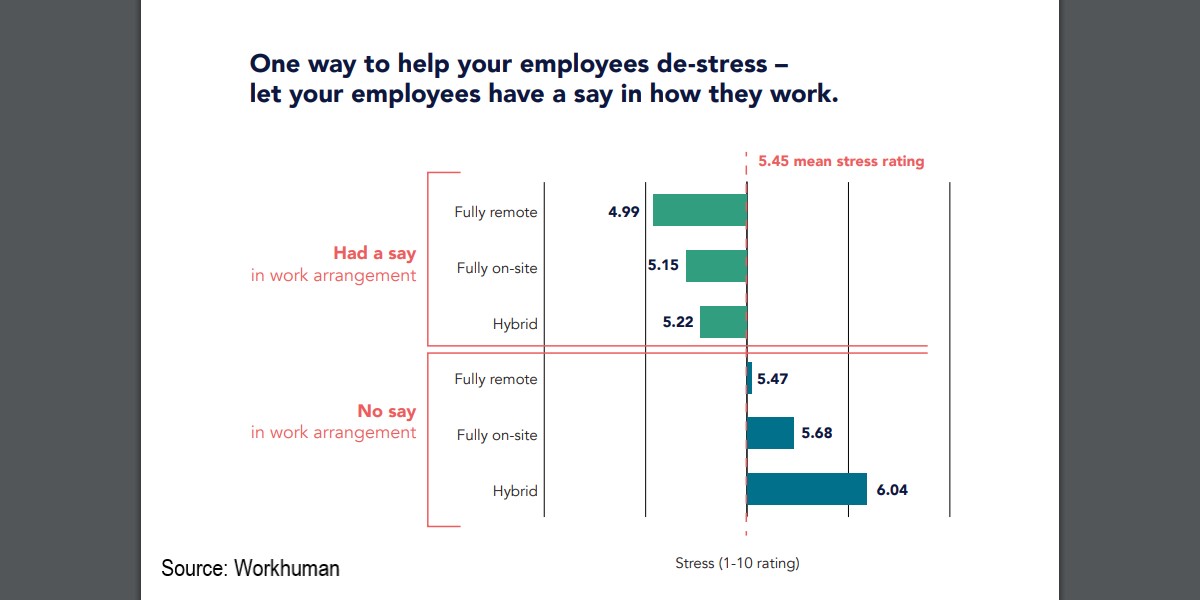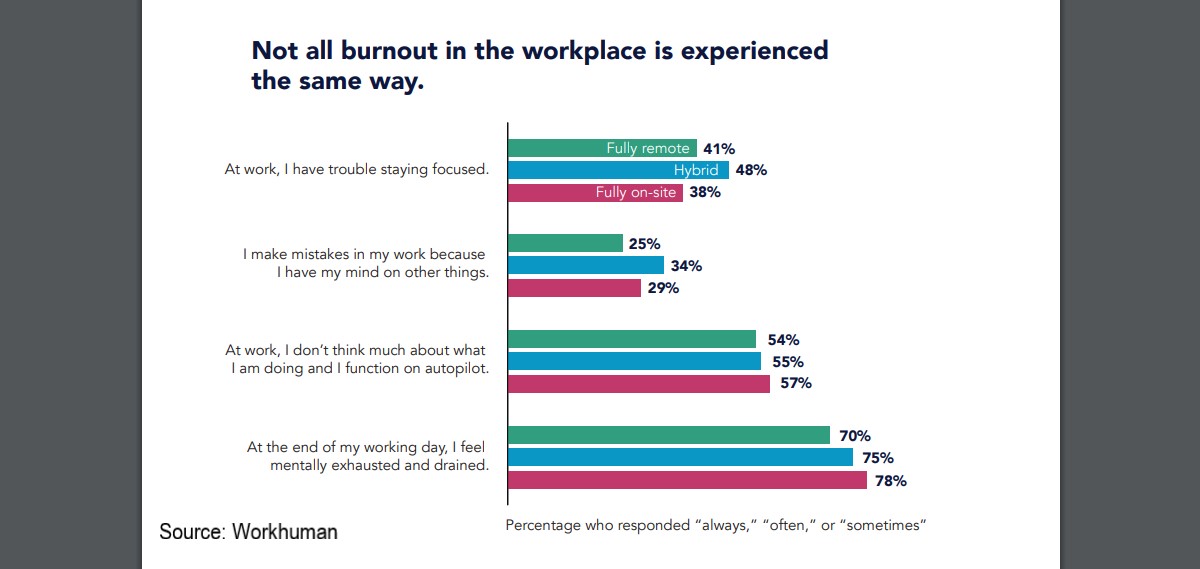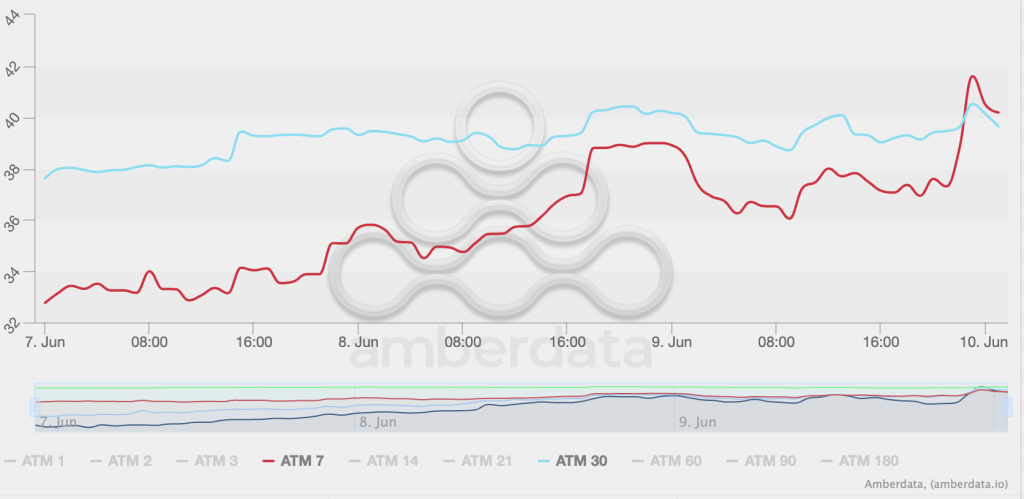Across the Western world, the percentage of employees with fully remote work conditions fell in 2022, with Canada and Ireland reporting the greatest hits, according to a study released this week.
In Canada, 13% of employees worked fully remote last year, down 10 percentage points from 2021. Ireland, meanwhile, ended the year at 9%, down 6 percentage points from the previous year, according to Workhuman iQ’s Evolution of Work report. The survey polled more than 4,100 full-time employees working in the U.S., Canada, Ireland and the United Kingdom.
The percentage of U.S. and U.K. employees with fully remote jobs also fell last year, but the decline was substantially smaller: The U.S. only suffered a 1% drop in remote work, from 14% to 13%, while U.K. employees with fully remote jobs inched down from 10% to 8%. Overall, the four countries combined saw a 4 percentage point drop to 11%.
“Not much changed in the U.S., and I’m not surprised,” Isha Vicaria, senior research and people data analyst with Workhuman, told HRE during the company’s Workhuman Live conference in San Diego. She notes that employers may have felt what was working in 2021 would also work in 2022, so they had no pressing need to dramatically change the percentage of workers in fully remote, hybrid and on-site positions. But while the percentage of employees in remote, hybrid and on-site work arrangements has remained fairly flat, concerns about a recession remain—and it has yet to be seen if U.S. employers will take advantage of that to require more workers to return to the office.
If that happens, there is likely to be pushback. For example, despite the threat of a recession, 22% of people say they are willing to take a pay cut to keep or land their preferred working arrangement.
See also: How stay-at-home parenting has evolved
Industries with decreasing hybrid and remote workers
In addition, a greater percentage of workers report their employer reverted to pre-COVID work arrangements last year than in the previous year in five industries, according to the survey.
Manufacturing, education, construction, government and non-profit, business and professional services industries all saw a decrease in hybrid and remote workers in 2022, compared to a year earlier.

But employees in the software and services industry saw an acceleration in the percentage of hybrid and remote workers, reaching roughly 90% last year, up from nearly 80% in the previous year, according to the study.
That figure may come as a surprise as a number of CEOs at high-profile tech companies, from Alphabet to Apple, are reportedly eyeing the potential of a fully on-site workforce. These and other tech CEOs have espoused the need to bring workers under the proverbial roof to foster greater collaboration and spontaneous exchange of ideas.
Related: Proximity matters at work. What does that mean for the future of remote work?
Some companies, meanwhile, have shifted from the largely three-day in-office schedule to a four-day on-site week, raising the question of whether that may become the new norm.
However, for now, most tech workers have settled into a permanent hybrid and remote working model, according to the study.
5 reasons to give employees work preference choice
Finally, eliminating employees’ choice for their work arrangement can have repercussions on a number of fronts, according to the Workhuman report.
It turns out 20% of survey participants scored lower on a number of key positive workplace outcomes like connection, productivity and desire for career growth when their work arrangement preference was brushed aside. In addition to these downsides, removing that choice can also contribute to stress and burnout, according to the report.
Hybrid workers who had no say in their work preference, for example, reported a higher level of stress than employees who were fully on-site and also fully remote workers, the study found.

Hybrid workers may encounter more stress because they are constantly switching gears between working in the office and at home, says Vicaria.
“This requires extra focus and attention, which translates into stress and burnout,” she says.

Despite the potential impact on employees’ wellbeing and productivity, it turns out 35% of survey participants say their employer did not provide the option to have a say in their work environment.
Employers need to take employee preferences into account when work arrangements are being decided, she adds.
“There is a psychological difference between wanting to work somewhere and being told you have to be somewhere,” Vicaria says. “It’s not about whether it’s hybrid, remote or on-site. The solution is tailoring that location to the employee’s preference.”
Credit: Source link











